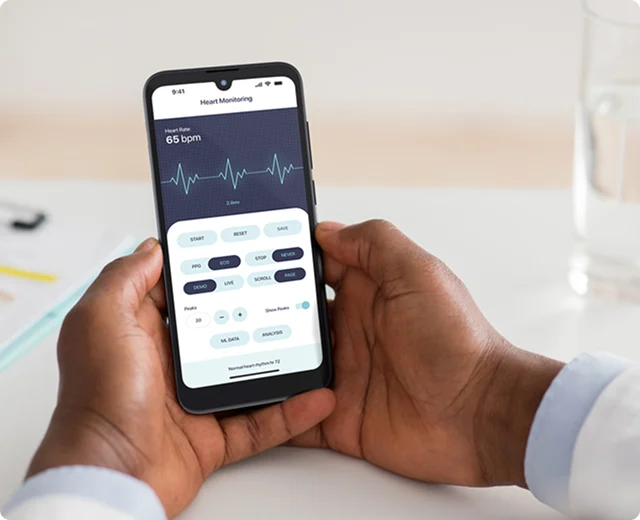
What is Remote Cardiac Monitoring?
Remote cardiac monitoring is an innovative technique through which physicians can monitor a patient's heart condition without the need for recurrent hospital visits. Advanced tech and advancements are used to constantly monitor the essential signs like heart rate, blood pressure, and oxygenation. Remote cardiac monitoring aids in the detection of underlying problems early on, providing patients with increased peace of mind as well as timely medical intervention when needed. Specifically designed for patients suffering from heart failure - it acts as a key tool to improve overall conditions. Our specialised team uses cutting-edge remote cardiac monitoring solutions, allowing patients to receive early care, bypass unnecessary hospitalisations, and significantly enhance overall health outcomes.
Impact of Remote Monitoring on Heart Failure Reduction
Remote monitoring has dramatically reduced hospitalisations and complications of heart failure. With close monitoring of vital signs at home, patients are able to have adjustments in their care plans in a timely manner, which prevents the worsening of conditions. Research has demonstrated that remote cardiac monitoring provides an early opportunity to detect subtle changes in heart function, allowing healthcare professionals to act before a crisis.
Remote monitoring encourages improved compliance with medications, lifestyle modification, and follow-up visits. Patients are more empowered and confident, aware that their condition is being actively monitored. The ongoing interaction between patient and specialist dramatically reduces emergency hospitalisation, decreases healthcare expenditures, and enhances overall survival rates for patients with chronic heart failure. Our sophisticated systems guarantee that each patient's medical information is safely sent, evaluated in a timely manner, and treated with personalised, proactive care plans, which improve the quality of life for our patients.
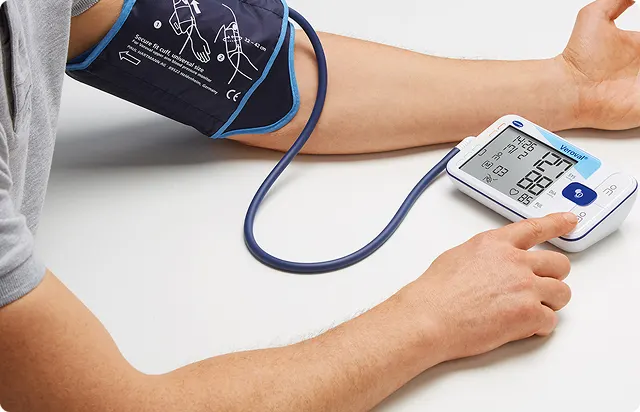
Blood Pressure Monitoring
Blood pressure monitoring is crucial for managing heart failure. Elevated or fluctuating blood pressure levels can strain the heart, leading to worsening symptoms or new complications. Through remote cardiac monitoring, patients can have their blood pressure checked multiple times a day without leaving their homes. This real-time data enables doctors to adjust medications and recommend lifestyle changes immediately, ensuring optimal blood flow and reducing the risk of further heart damage.
Heart Rate
Heart rate monitoring helps detect irregularities or abnormal rhythms that could signal worsening heart failure. A consistently high or low heart rate may require urgent medical intervention. Remote cardiac monitoring captures heart rate variations throughout the day, offering a comprehensive view of cardiac performance. This allows the healthcare team to respond quickly to any concerning trends, maintaining stability and reducing the risk of serious complications for patients living with heart failure.
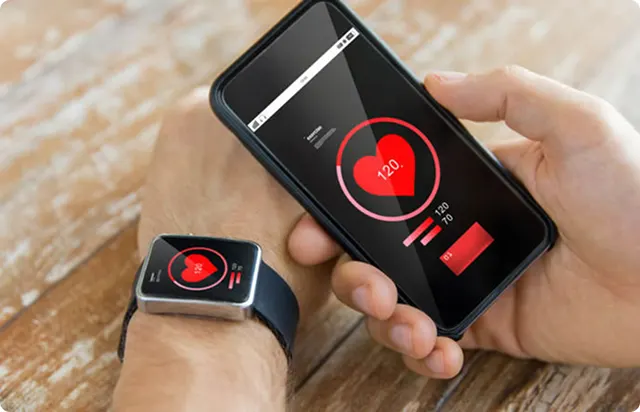
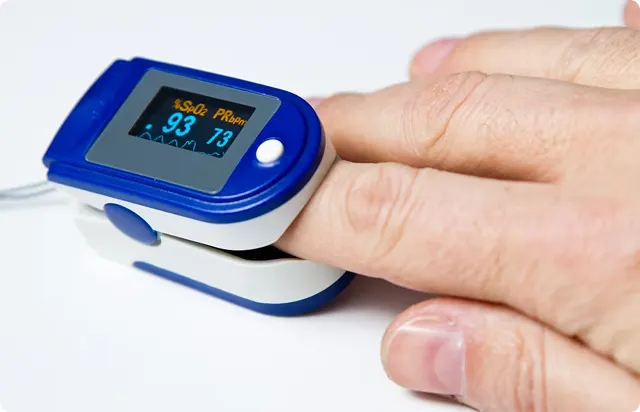
SpO2 Monitoring
Spo2 monitoring detects the blood's oxygen levels, offering vital information about lung and heart function. Decreased oxygen levels may show water accumulation in the lungs or inefficient heart function, a frequent situation in heart failure. Remote cardiac monitoring guarantees uninterrupted Spo2 tracking, allowing for early detection of oxygen deficits. Doctors can respond in real-time with immediate alerts, avoiding hospitalisations and enhancing the comfort of a patient's breathing and general energy, thereby improving their quality of life.
Who Needs Remote Heart Monitoring?
Patients with Heart Failure

Patients with heart failure benefit from constant tracking of vital signs, helping prevent emergencies and allowing doctors to adjust treatments proactively based on early warning signs.
Individuals with Arrhythmias
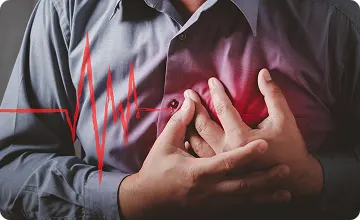
Remote monitoring detects irregular heartbeats in real-time, enabling timely medical interventions and reducing the risk of complications like stroke, heart attacks, and further deterioration of heart function.
Post-Heart Surgery Patients
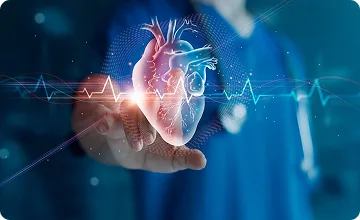
After heart surgeries, continuous monitoring ensures early detection of potential complications, promoting quicker recovery, better surgical outcomes, and reducing the need for emergency readmissions to hospitals.
Elderly Individuals

Elderly patients often have multiple health concerns. Remote cardiac monitoring offers a safer, more comfortable way to track heart health while reducing unnecessary hospital visits and promoting independent living.
People with Hypertension or Diabetes
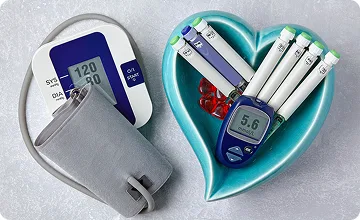
Chronic conditions like hypertension and diabetes increase heart disease risk. Remote monitoring provides critical data, allowing early intervention and better management of heart-related complications in high-risk individuals.
Those with a Family History of Heart Disease
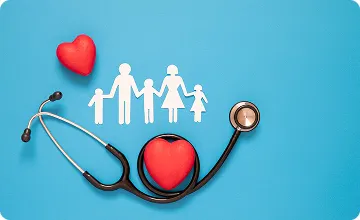
Individuals with a family history of heart disease can benefit from early, proactive monitoring, identifying risk factors early and receiving preventive care to reduce their chances of developing serious heart conditions.
Patients in Remote or Rural Areas
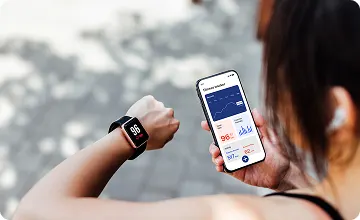
Remote cardiac monitoring bridges healthcare gaps for patients living far from hospitals, offering reliable, ongoing cardiac care without the need for frequent, long-distance travel for consultations.
RemoteHeart Monitoring Device
A remote cardiac monitoring device is a compact, wearable or implantable tool that records and transmits vital heart data to healthcare providers. These devices continuously track parameters like heart rate, rhythm, blood pressure, and oxygen saturation. The advantage of using a remote cardiac monitoring device is that it enables early identification of dangerous changes before they escalate into major issues. Patients can go about their daily lives while staying connected to their cardiologist in real-time.
Our centre uses the latest remote cardiac monitoring device technology to ensure maximum comfort, data accuracy, and patient safety. These devices are designed to be easy to wear and require minimal technical knowledge to operate. Whether monitoring for heart failure, arrhythmias, or recovery after cardiac surgery, a remote cardiac monitoring device plays a vital role in maintaining patient health and preventing hospitalisations, ensuring better heart care outcomes from the comfort of home.
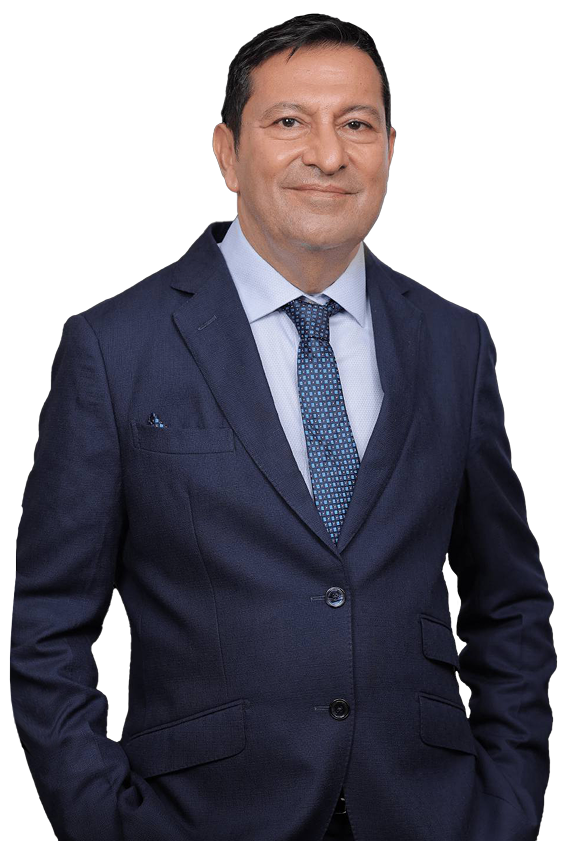
Why chooseDr. Merchant for Remote Cardiac Monitoring
Dr. Merchant offers advanced, personalised, remote cardiac monitoring solutions for patients in Mumbai and nearby areas. With extensive experience in managing complex heart conditions, Dr. Merchant uses cutting-edge remote cardiac monitoring device technology to ensure that no symptom or change goes unnoticed. Every patient receives a tailored care plan based on their unique needs, supported by real-time data tracking and expert medical review. Our monitoring systems are user-friendly, reliable, and designed to provide maximum comfort for patients.
Timely notifications, real-time interventions, and trained support staff guarantee patients feel safe and confident at all times. Selecting Dr. Merchant means entrusting your heart health to one of the most experienced and respected cardiology teams. We carry forward technological excellence with empathetic care, assisting patients in gaining greater control over their heart conditions and enhancing overall quality of life through ongoing, expert-led support.
frequently asked questions
-
Remote monitoring uses a remote cardiac monitoring device that records vital signs and transmits them securely to a healthcare provider for ongoing evaluation.
-
By using a remote cardiac monitoring device, patients can track their blood pressure, heart rate, and oxygen levels, helping doctors manage their heart failure effectively from home.
-
While heart failure is often a lifelong condition, with early treatment, lifestyle changes, and continuous tracking through a remote cardiac monitoring device, patients can significantly improve their heart function and quality of life.
-
A remote monitoring unit refers to the system, including the remote cardiac monitoring device and software, that helps doctors remotely observe and manage a patient’s heart condition in real-time.
-
An RPM blood test is part of Remote Patient Monitoring, helping assess heart failure indicators like electrolyte balance, kidney function, and biomarkers, complementing data from a remote cardiac monitoring device.
